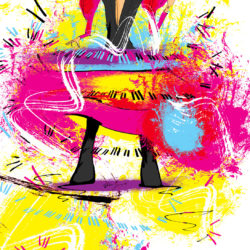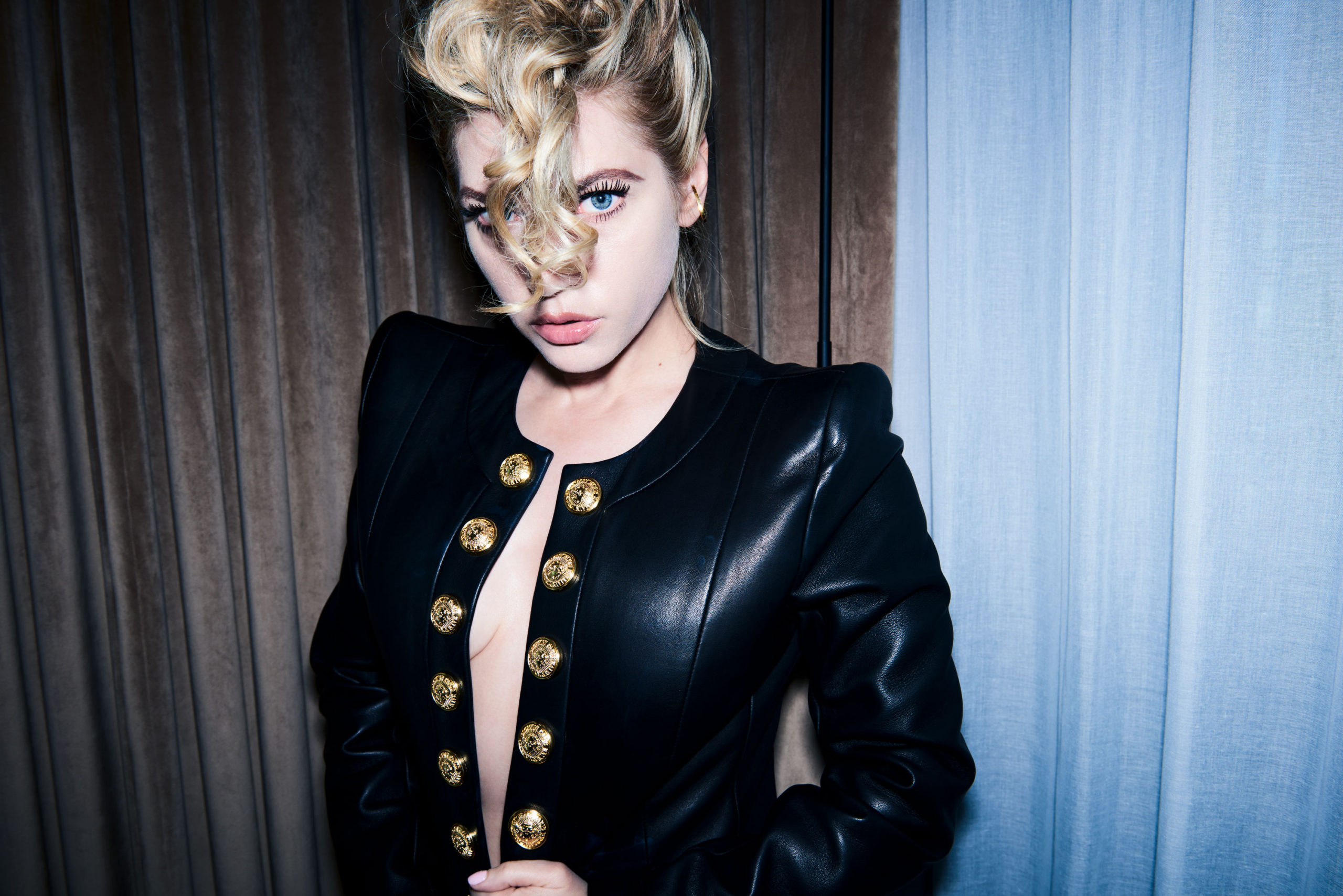Tuppence Middleton has been very naughty
TALENT TUPPENCE MIDDLETON CREATIVE DIRECTOR ALAN ABOUD PHOTOGRAPHER RANKIN STILLS ASSISTANT BEN DUAH STILLS ASSISTANT TATJANA GALIC STILLS ASSISTANT HADASSI REUBEN STILLS ASSISTANT MANNY OWUSU-AFRAM STILLS ASSISTANT FIONA HUTCHINGS DIGITAL TECH NEIL BENNETT DIGITAL TECH ALEX GALE FASHION STYLIST ELLIE WITT FASHION STYLIST ASSISTANT SANDRA BLAZINSKAITE HAIR STYLIST EARL SIMMS MAKE-UP ARTIST LIZ DAXAUER EXECUTIVE PRODUCER NICOLA KENNEY PRODUCER CHRISTINE WRIGHT INTERVIEW CHRISTIAN CHENSVOLD






In the game of life, “success at any cost” is without a doubt the most effective attitude to take. While English actress Tuppence Middleton might not exactly have taken that as her mantra, she did set her career sights on acting with no backup plan in case it didn’t work out. But it has, marvelously so, and audiences have been treated to her talents in The Imitation Game, Jupiter Ascending, and the BBC’s recent version of Tolstoy’s War & Peace, in which she portrayed “the naughtiest woman on TV at the moment.” She will soon be seen in the upcoming film Downton Abbey, which is slated for release on September 20th.
VM: You’ve done period pieces and science fiction, the past as well as the future. What’s it like adapting to these vastly different worlds?
TM: That’s what you want as an actor, something different from the last project. But even if it’s the same genre, the scripts and characters have been very different. I’ve wanted to act since I was quite young. Going to the movies is a form of escapism, and it’s the same for actors. It’s our chance to escape everyday life.
VM: If you had a time machine, would you rather go to the past or the future?
TM: I’m a bit scared of the future at the moment! As for the past, when you get to work in different periods you see the good and bad in all of them. I imagine the ’60s would be pretty cool. I’m shooting a series at the moment called Shadowplay, set in Berlin as the Cold War is brewing. It’s a really interesting period, with some amazing art and creation, a very free period. I’m researching it, and there are some parts of it that are really appealing.
VM: Some method actors live as their character throughout a shoot. Do you ever find it hard to turn off a character?
TM: There are many ways to get to where you want to be, and for some people it’s staying in character and not speaking to anyone. But that wasn’t really how I was trained. You’re shown many techniques, and you explore the ones that resonate with you. It must be really tough taking your work home with you, especially when doing something psychologically stressful. I can’t imagine what that does to the inside of your mind! I admire people who can do that, but I like putting in hard work and then coming home and shaking it off. That’s the only way I can keep my sanity. This is a job you want to be doing for life, and you want it to be a slow burn. You have to look after your mind.
VM: You’ve said that as a child, theater was an outlet for you. What exactly was it an outlet for?
TM: I could be quite anxious when I was younger, which is something I still experience, but as an adult you find ways of dealing with it. So I think when you’re not quite sure who you are, you can be other people. I think it’s appealing to try on different hats and live a day in someone else’s shoes. It gave me confidence. I felt I could do or be anything. I also grew up in a small seaside town, so it was a total dream that I would ever make this my work. I went to an audition when I was 18 and managed to get into one of the drama schools in London. That’s when I started to take it seriously, when I knew it was a potential career.
VM: What was it like when you realized the dream was actually coming true?
TM: Just moving to London at 18 to live alone, and meeting others who took it really seriously, training from 8 AM to 6 PM. That was such a big deal. I was really lucky and got my first film job in my third year of school. But it’s the same with all actors: no matter what level of success they have, everyone thinks the job they’re currently filming is going to be their last. You never quite feel settled. It can be very anxiety-inducing, but it’s also part of the thrill. You’re always taking on the next challenge, but the fear never really goes away.
VM: Even with how busy you are now?
TM: Yes, even while going back and forth from Prague and Toronto on my last two projects, I knew the end dates, and I thought, “That’s it, I’m back to a lifetime of unemployment until someone else says, ‘Want to have a go at this?'”
VM: What advice do you offer for anyone contemplating such a career?
TM: I didn’t give myself a Plan B, because I think if you do then you end up taking it. That may be terrible advice, but you have to want it to work out to the point where you can’t imagine doing something else. Also, it’s such a personal journey. You might go straight from school to mega-success in a Marvel film, while others might take years to hone their craft. So don’t compare yourself to other people, and try not to keep looking sideways. You’ll eventually find the work you want to do, and that’s a lovely place when you can start to exercise your own taste and seek out people you really want to work with.
VM: If you could create your own ideal project, what would it be?
TM: Hmm, that’s quite hard! I just wrote a short film, so I’d like to do more of that in the future, and possibly direct. Something not for me, but where I’m an observer, where the whole thing is my baby. But playing Lady MacBeth would be cool. And with film it’s probably directors: people like Paul Thomas Anderson or David Lynch, who are experimenting and doing something exciting. I think you know it when you see it. When you’re auditioning you read scripts weekly, and now and then something comes along and punches you in the gut and you want to be a part of it.
VM: You mentioned your need for solitude. That can be unusual, since some people can’t handle being alone.
TM: I’ve only realized as an adult that it’s not everyone’s natural state! I do enjoy meeting new people, and have to be, otherwise I’d be terrible at my job, because it’s like the first day of school with every job you do. You meet this whole group of personalities, introducing yourself, and there’s something about that I really love. But I also have to have my own space to reset. They say that’s the true definition of an introvert, someone who recharges by going back to their quiet space, and then they can come back out to the world. I can go all day without speaking to anyone and be totally fine with it. When I have time off, I’ll go rent a cottage by the sea for a few days and read and cook for myself. That’s kind of my idea of heaven.


